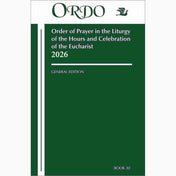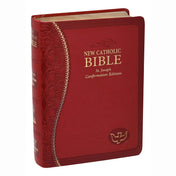Whoever expected that the latest round of “liturgy wars” would be fought before the eyes of the whole world here in the Tar Heel State? How might a faithful Catholic, whether laity or clergy, best respond? Certainly not by uncharitable posts on social media (including blogs!). Nor by sticking our individual and/or collective heads in the sands. The Tar Heel disciple humbly recommends sincere prayer for everyone involved in these and similar controversies, old and new, near and far, and self-education. More people have opinions, it sometimes appears, than knowledge. Even those charged at the highest levels of the local church, sometimes, don’t appear to have a deep knowledge of matters over which they have responsibility.
What are we to do, practically? Of course, we might scour over church documents, searching out the most recent legislation and applicable rubrics. But few will be attracted to this discipline, and it often results in little real edification. Than what? This scribe respectfully suggests a good read: The Spirit of the Liturgy by Joseph Cardinal Ratzinger (Ignatius Press, 2000). The author, of course, was elected to the papacy in 2005, following the death of St. Pope John Paul II. He had served the sainted pope as prefect of the Dicastery for the Doctrine of the Faith, after serving as the bishop of Munich, and for many years before that as a university professor. He was also present at Vatican II as an “expert” (peritus). His writings are clear, scholarly, and always charitable.
Interestingly, he wrote the preface for this book about the liturgy on the feast of St. Augustine (August 28, 1999), the great Father of the Church whose teachings so influenced Joseph Ratzinger in every stage of his life (not to mention Pope Leo XIV). From the vantage point of profound scholarly knowledge and personal experience, Cardinal Ratzinger offers a most helpful analysis of various components of the “liturgy wars” that followed the council and remedies for the damages that have resulted from the constructions and deconstructions that were alien to the intentions of the Fathers of the same council. He offers a “renewal of understanding” of the Church’s liturgy in light of the authentic teachings of the council and of more recent times.
If anyone doubts whether a book written a quarter of a century ago would still be relevant, he/she has only to see the news from our own state on the internet…and to read this book!



